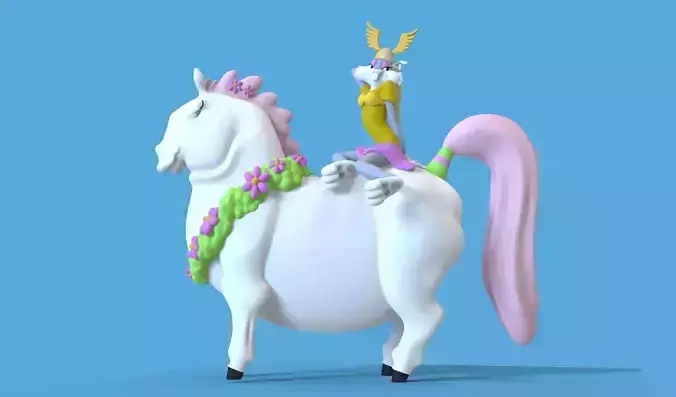1/26
ENGLISH:
What's Opera, Doc? is a 1957 American Warner Bros. Merrie Melodies cartoon directed by Chuck Jones and written by Michael Maltese.[1] The short was released on July 6, 1957, and stars Bugs Bunny and Elmer Fudd.
The story features Elmer chasing Bugs through a parody of 19th-century classical composer Richard Wagner's operas, particularly Der Ring des Nibelungen (The Ring of the Nibelung), Der Fliegende Holländer (The Flying Dutchman), and Tannhäuser. It borrows heavily from the second opera in the Ring Cycle Die Walküre, woven around the typical Bugs–Elmer feud. Most of the dialogue is performed in recitative. The short marks the final appearance of Elmer Fudd in a Chuck Jones cartoon.It has been widely praised by many in the animation industry as the greatest animated cartoon that Warner Bros. ever released, and has been ranked as such in the top 50 animated cartoons of all time. In 1992, the Library of Congress deemed it culturally, historically or aesthetically significant, and selected it for preservation in the National Film Registry, the first cartoon short film to receive such honors.
Z: 100mm.
SPANISH:
¿Qué es la ópera, doctor? es una caricatura estadounidense de Warner Bros. Merrie Melodies de 1957 dirigida por Chuck Jones y escrita por Michael Maltese. El corto se estrenó el 6 de julio de 1957 y está protagonizado por Bugs Bunny y Elmer Fudd.
La historia presenta a Elmer persiguiendo a Bugs a través de una parodia de las óperas del compositor clásico del siglo XIX Richard Wagner, en particular Der Ring des Nibelungen (El anillo del Nibelung), Der Fliegende Holländer (El holandés errante) y Tannhäuser. Se inspira en gran medida en la segunda ópera del Ciclo del anillo, Die Walküre, entretejida en torno a la típica disputa entre Bugs y Elmer. La mayor parte del diálogo se realiza en recitativo. El corto marca la aparición final de Elmer Fudd en una caricatura de Chuck Jones.Ha sido ampliamente elogiado por muchos en la industria de la animación como el mejor dibujo animado que Warner Bros. haya lanzado jamás, y ha sido clasificado como tal entre los 50 mejores dibujos animados de todos los tiempos. En 1992, la Biblioteca del Congreso lo consideró cultural, histórica o estéticamente significativo y lo seleccionó para su conservación en el Registro Nacional de Cine, el primer cortometraje de dibujos animados en recibir tales honores.
Z: 100mm.
REVIEWS & COMMENTS
accuracy, and usability.


























